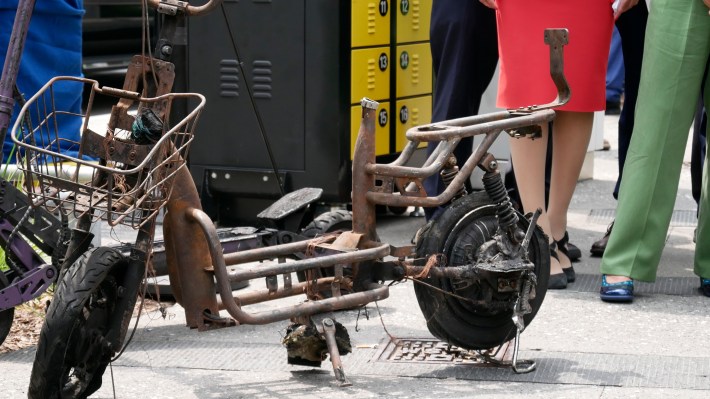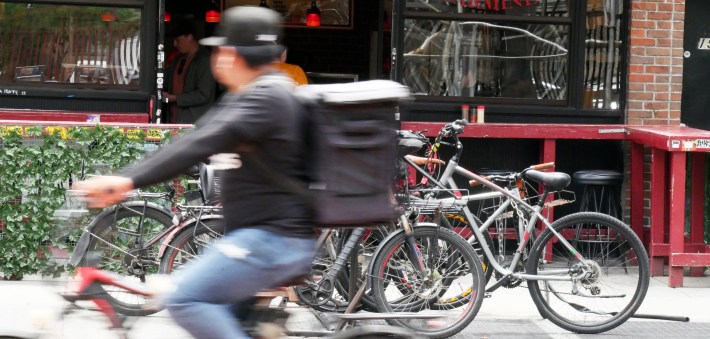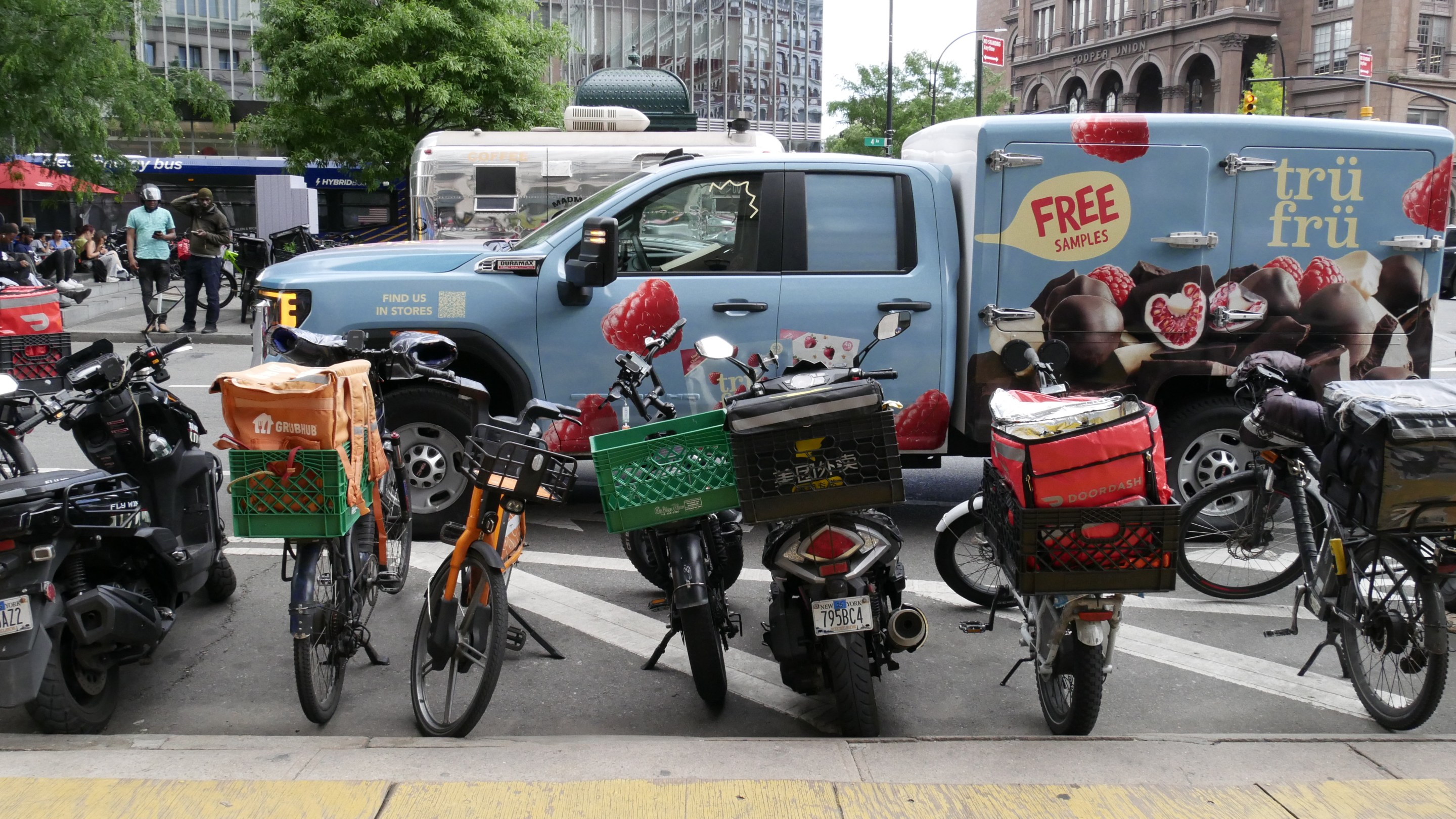With great power comes, um, what exactly?
New laws aiming to rein in uncertified lithium-ion batteries now allow city officials to shut down retailers who repeatedly sell the potentially dangerous power-packs and micromobility devices, but it remains to be seen how Mayor Adams uses the new power.
The two laws regulating electric micromobility retailers took effect on Sept. 21, ushering in a new era when brick-and-mortar retailers that repeatedly violate the ban on uncertified batteries and uncertified battery-powered vehicles can be shuttered.
On Wednesday, City Hall and the Council put out a joint press statement hailing the new powers, but neither of the Adamses at the top of those esteemed institutions talked about actually using the power.
That job fell to Department of Consumer and Worker Protection Commissioner Vera Mayuga.
“We need retailers to understand that this is an urgent safety issue, and we will not hesitate to use all of the tools in our toolbox to protect our neighbors,” she said.

Council Member Gale Brewer introduced the two bills, Local Law 49, which requires businesses to post safe battery storage information, and Local Law 50, which gives the city "padlock-power" to shutter repeat violators.
The two laws build on the lithium-ion battery regulations passed by the Council last year. Local Law 39 of 2023 required all devices and batteries sold, leased or rented out in the city be certified by an accredited testing laboratory in compliance with Underwriters Laboratory (UL) standards.
Lithium-ion batteries fires have dropped this year, but remain well above what they were a half-decade ago ... before the widespread use of low-quality electric bikes and mopeds imported under sketchy circumstances: City officials recorded 210 fires, 85 injuries and three fatalities caused by lithium-ion batteries from the beginning of the year through Oct. 7. Those numbers are down from 2023, but still much higher than the 44 total fires in 2020, according to the FDNY.
Since Local Law 39 went into effect last September, the Department of Consumer and Worker Protection conducted more than 650 inspections and issued more than 275 violations to brick-and-mortar stores, both independently and in conjunction with FDNY. Officials also issued 40 cease-and-desist letters and more than 25 violations to online retailers, according to city records.

The new laws allow FDNY to padlock, or forcibly close, retailers who violate Local Law 39 three times in three years — raising the stakes significantly. Except there's one problem, said one industry expert: E-bike users don't only get their batteries at local brick-and-mortar shops. There are also large online retailers that sell non UL certified batteries.
"Unless they're padlocking Amazon or eBay or Walmart for doing it, it's not fair," said Baruch Herzfeld, the CEO and co-founder of Pop Wheels, a battery swap company that operates a battery charging station in Cooper Square with more on the way.
Herzfeld said he supports the law, but that the city should also be incentivizing the use of certified batteries and outdoor, safe charging stations.
"The city is strong on enforcement, but slow on incentives. They need to find a way to incentivize people to own safe batteries, and charge those batteries safely," said Herzfeld.
This effort is a component of the administration’s “Micromobility Action Plan” that encourages safe use of micromobility. In August, the mayor announced a fast track for businesses and building owners who want to use the sidewalk to install battery charging hubs. The mayor also said he would create an e-bike trade in program for workers with uncertified batteries.






